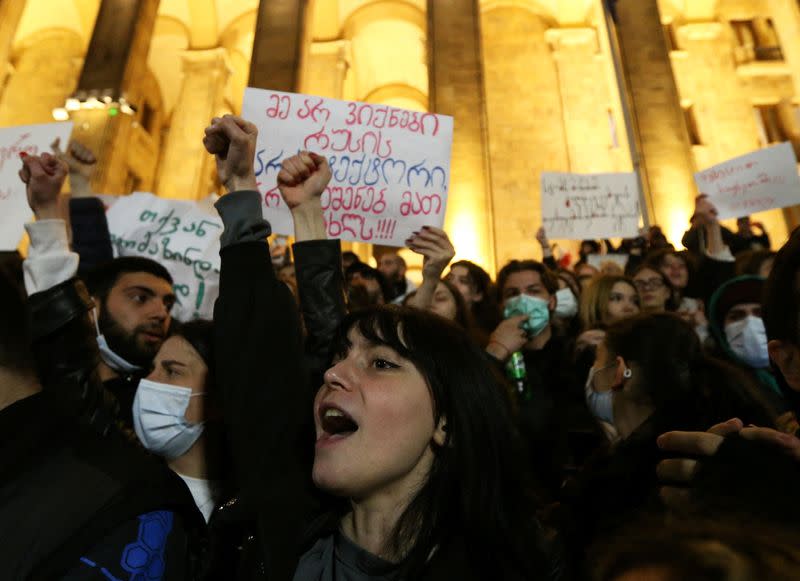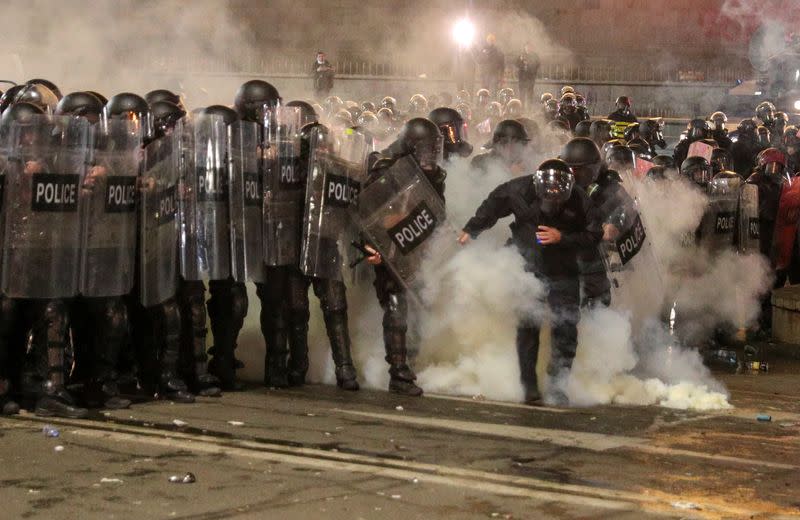EU criticises Georgian foreign agent bill, Kremlin defends it
By Felix Light
TBILISI (Reuters) - The European Union on Thursday criticised the Georgian government for resurrecting a bill on "foreign agents" that it abandoned amid protests last year, while the Kremlin defended the legislation.
The bill would require organisations receiving more than 20% of their funding from overseas to register as "pursuing the interests of a foreign power".
Georgia's ruling party said on Wednesday it would reintroduce the legislation after abandoning an earlier attempt to introduce the law in March 2023 amid violent protests by critics who compared it to Russian laws used to crack down on dissent.
The European Union, which granted Georgia candidate membership status in December but said progress would be subject to further reforms, said it "regrets" the decision to re-introduce the bill. It raised "serious concerns", the EU said in a statement.
The bill's Georgian critics have labelled it a "Russian law", a potent charge in a country where Russia is broadly disliked for its role in supporting the breakaway regions of Abkhazia and South Ossetia.
Kremlin spokesman Dmitry Peskov told reporters that critics of the draft law "need to more actively explain the absurdity of considering this a Russian project".
Peskov added that Russia wants "stability and predictability" in Georgia, and defended the proposed law, saying: "No state wants interference from other countries in domestic politics; this is normal practice."
Though Russia and Georgia have fought a series of wars over the separatist regions since the 1990s, and have no diplomatic relations, Tbilisi has deepened ties with Moscow since the beginning of the conflict in Ukraine.
Both Western and domestic critics have accused Tbilisi's Georgian Dream governing bloc of authoritarian tendencies and excessive closeness to Russia, even though it says it wants Georgia to join the EU and NATO.
Opposition parties and activists in Georgia have said that any attempt to move forward with the bill will prompt mass protests, similar to those that forced its withdrawal in March 2023.
(Reporting by Reuters)



